Dogs will sleep in the closet when they are seeking a quiet and enclosed space, as a response to loud noises, or as a sign of depression. Practical solutions such as making the closet a comfortable space or offering alternative sleeping arrangements like a crate or dog bed can help your dog feel safe. Learn to recognize signs of distress and seek professional help if needed, ensuring your dog’s well-being and comfort.
Estimated reading time: 7 minutes
Have you ever walked into a room to find your dog sleeping in the closet? This behavior might seem strange, but many dogs choose the closet as their place to sleep.
Every dog is unique. Some might love a soft bed, while others prefer a small space like a closet. Sleeping in a closet isn’t new behavior for dogs.
We’ll explore the reasons why dogs sleep in the closet, how it may make them feel safe and secure, and what you can do if your furry friend starts to hide in your closet.
Reasons Why Your Dog Sleeps in the Closet
Understanding why your dog may choose the closet as their preferred sleeping spot can help you make them feel more comfortable. Let’s dive into some common reasons.
Comfort and Security
Many dogs find the closet a safe and secure place to sleep. The enclosed space provides a den-like environment, where they feel protected from loud noises and foot traffic. This instinct is hard-wired into many dogs, and a quiet closet offers the perfect spot to rest.
Doggy Depression: What to Look For
It’s possible that your dog sleeping in the closet could signal that your dog is feeling unwell or depressed. Dogs, like humans, can feel depressed. If your dog always goes to the closet and shows other signs of sadness, it may be feeling down. Signs of weakness, changes in appetite, or a sudden urge to hide in your closet can indicate something more serious.
A significant change in the home, loss of a family member, or underlying health issues might trigger this emotion. Understanding the signs is the first step in helping your furry friend. Talk to your vet to learn more about why dogs might behave this way and what you can do to help your dog feel safe and loved.
Other Behavioral Reasons Why Dogs Sleep in Such Places
Sometimes, the reason behind the behavior is not so clear. Older dogs or sensitive creatures might love a closet’s quietest corner to unwind. If your dog starts to sleep in the closet whenever there’s a thunderstorm, it could be their way to feel safe and secure from the unsettling noise.
Additionally, if you find your dog has started sleeping in the closet, a new bed like a kennel or crate may provide the comfort they seek.
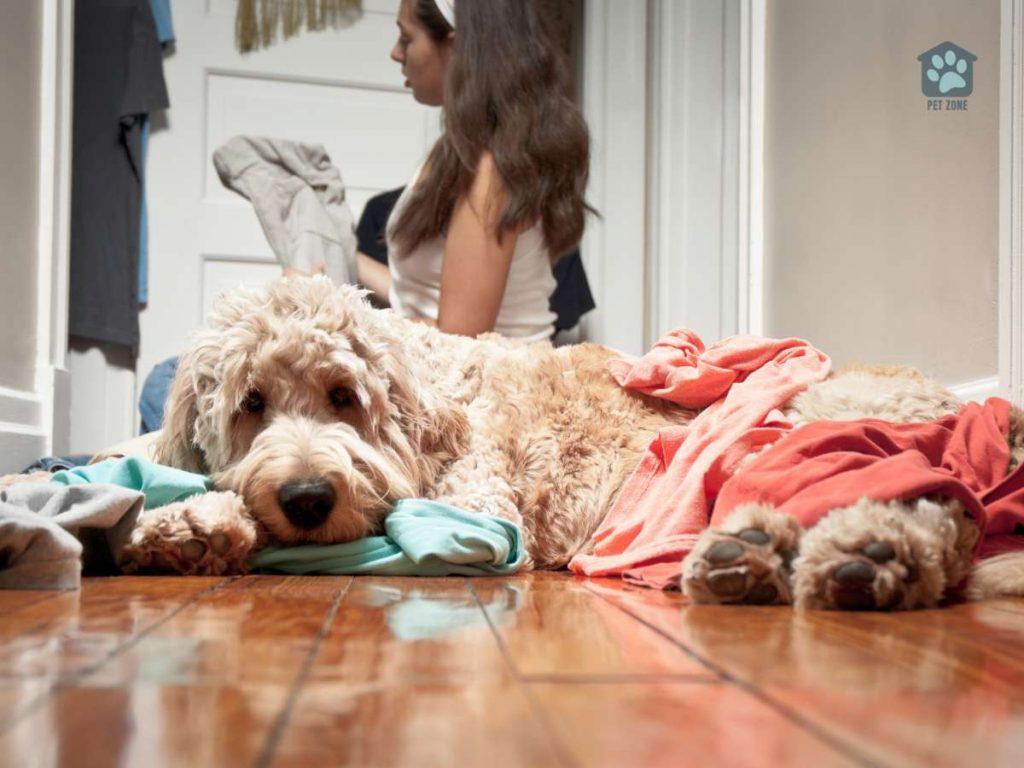
Signs That Your Dog May Need Help
Dogs often choose certain places to sleep that make them feel safe and secure. However, if your dog starts suddenly sleeping in a closet, it could be a sign that something’s wrong.
Changes in Sleeping Habits
If your dog has started sleeping in the closet and this is a new behavior, it’s important to take notice. Older dogs may seek out a quiet place like a closet, but sudden changes in any dog’s sleep habits should be observed closely.
Sensitivity to Noise
Dogs that are sensitive to loud noises like thunderstorms might find a closet the perfect place to hide. It’s an enclosed space that makes them feel safe. If your dog goes to the closet specifically during loud events, consider ways to make that space more comfortable or get a crate or soft bed that they can call their own.
Signs of Illness or Distress
If you find your dog is hanging out in your closet more than usual, it might be a sign of distress or feeling unwell. Look for other signs like changes in eating habits or a lack of wag in their tail. Talk to your vet if you notice these or other signs that your dog may need medical attention.
Encouraging the Behavior or Not: What’s Best for Your Dog?
When you find your dog sleeping in a closet, it might make you wonder whether you should encourage this behavior or try to stop it. Here’s what you need to consider.
Understanding Your Dog’s Needs
Every dog is unique, and so are their needs. Some dogs like to sleep in small spaces like a closet because it helps them feel safe and secure. Others might be seeking a quiet place away from foot traffic to relax. Understanding why your dog likes the closet will help you decide whether to allow them to continue.
When to Stop This Behavior
Not all reasons for a dog sleeping in a closet are good. If your dog is depressed or showing signs of illness, it’s essential to talk to your vet and address the underlying issues. In these cases, allowing the dog to hide in the closet may not be beneficial, and you’ll need to find solutions that help them feel safe and loved.
Solutions and Considerations for Dogs That Sleep in the Closet
So, your dog loves to sleep in the closet. Is this something to worry about? Not necessarily! But there are solutions and considerations to keep in mind.
How to Help Your Dog Feel Safe and Loved
A dog that’s feeling sad needs extra love and care. Spending quality time, offering treats they like, and providing a soft, comfortable place to sleep can help your dog feel more comfortable.
Provide a Safe and Secure Place
If your dog finds comfort in the closet, you can make that space even cozier. Remove any objects that might be harmful and add a soft dog bed. This provides a safe and secure place where your dog can relax without worry.
Consider Other Sleeping Options
If you’d rather your dog not sleep in the closet, think about alternative sleeping arrangements. A crate or kennel designed to feel like a den might be a great option. These enclosed spaces can give your dog the same sense of safety they seek in the closet.
Address Any Underlying Issues
If the behavior starts suddenly or you suspect your dog might be feeling unwell, don’t hesitate to consult a veterinarian. Understanding the reason behind the behavior is crucial in finding the right solution. Talk to your vet, and they can help you address any health or emotional concerns that may be causing your dog to seek out the closet.
Train Your Dog to Sleep Elsewhere
Training your dog to sleep in a designated dog bed or crate instead of the closet might be necessary if the behavior becomes problematic. Positive reinforcement and patience can guide your dog to a new, appropriate place to sleep. Consult a professional dog trainer if you need help with this transition.
When to Seek Professional Help
Sometimes, a dog’s depression may need professional intervention. If your efforts to comfort and cheer up your dog don’t seem to work, don’t hesitate to talk to your vet. They can assess your dog’s health and recommend therapies or treatments that may help.
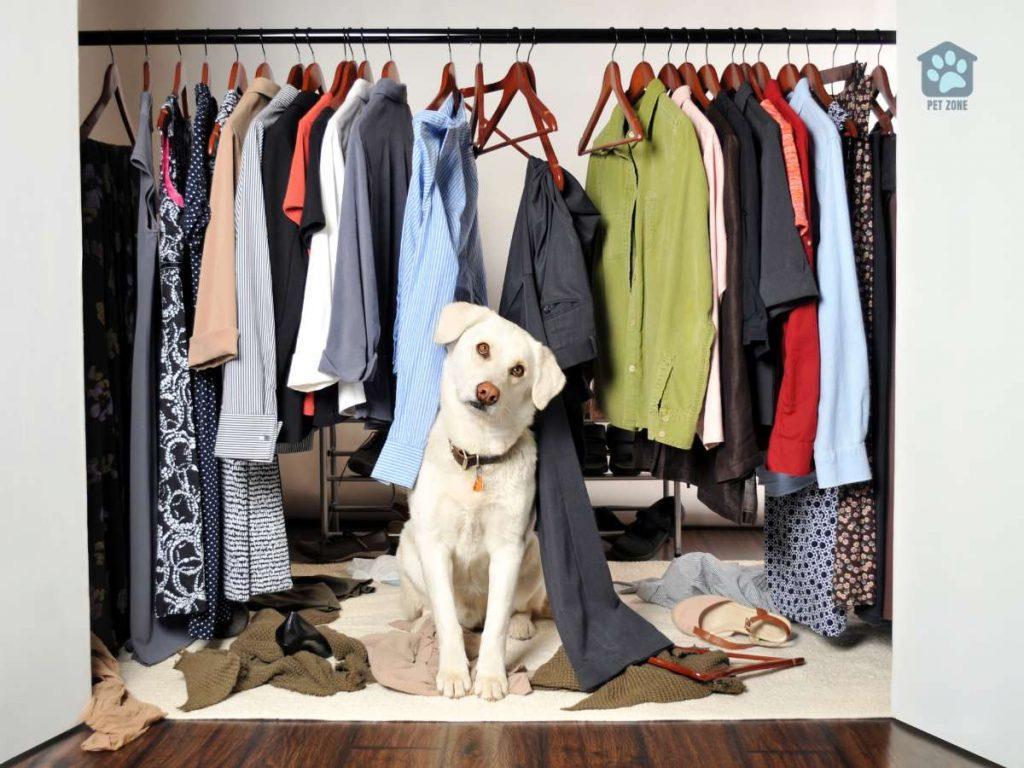
Final Thoughts on the Subject
Dogs are sensitive creatures with unique needs and preferences. Whether your dog likes to sleep in the closet because it provides a safe and secure place or it’s a sign of deeper issues like depression, understanding their behavior is key. In this article, we’ve explored the reasons why dogs may choose to sleep in the closet and offered solutions and considerations for every scenario.
From making the closet a comfortable space to seeking professional help if needed, the well-being of our furry friends is always the priority. With these insights, you can create a loving environment that caters to your dog’s individual needs.
We’d love to hear from you! Do you have experience with your dog sleeping in the closet? Have you tried any of the solutions mentioned above? Share your comments below, and don’t forget to share this article with other dog owners who might find it helpful. Your insights and shares help us learn more about why dogs do what they do and how we can make them feel safe and loved. Thank you!
As an Amazon Associate I earn from qualifying purchases.
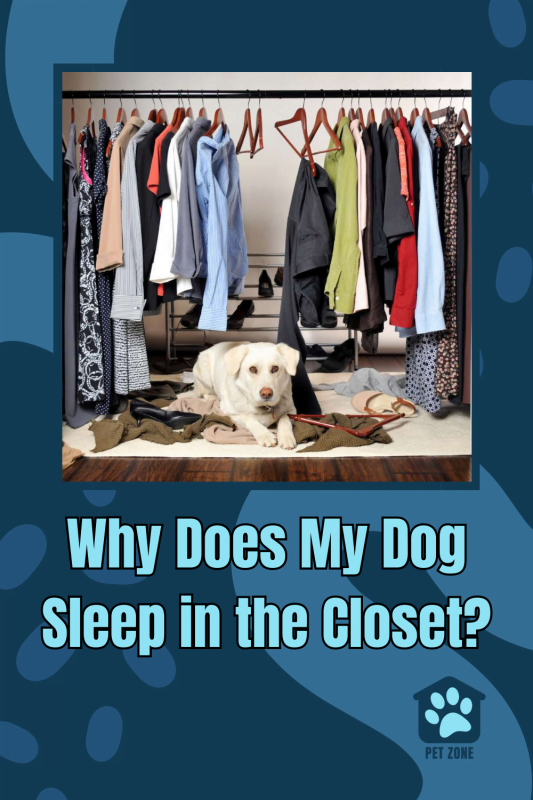


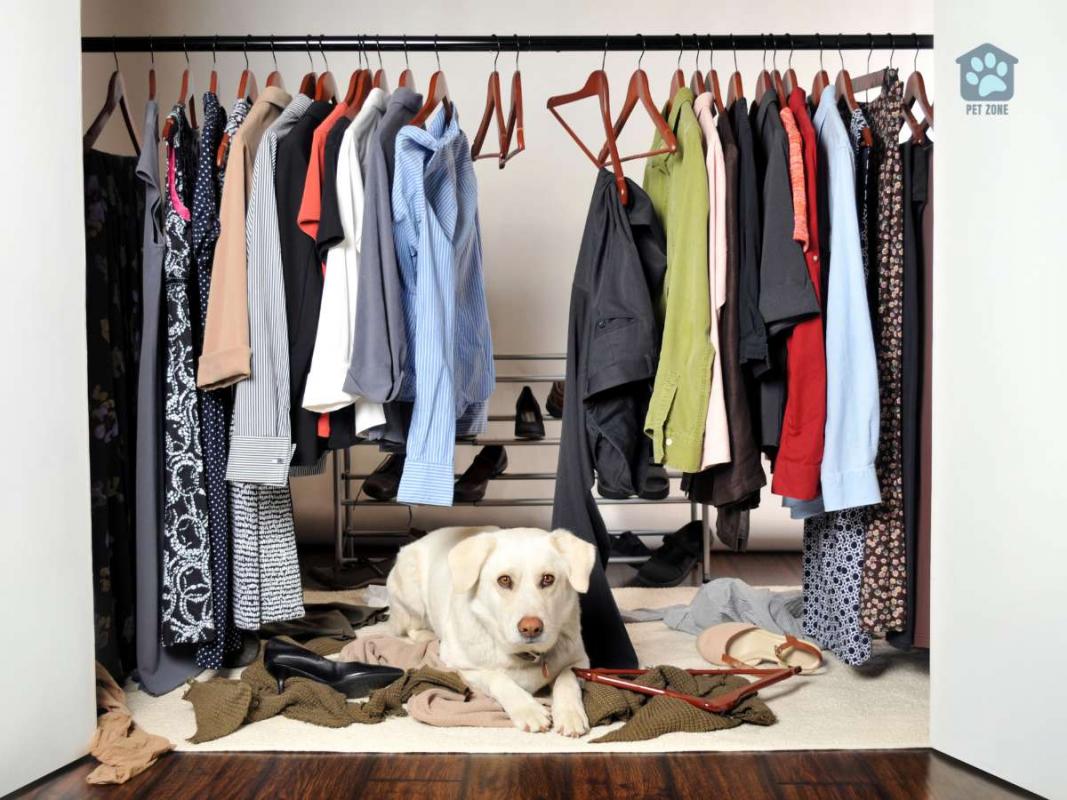
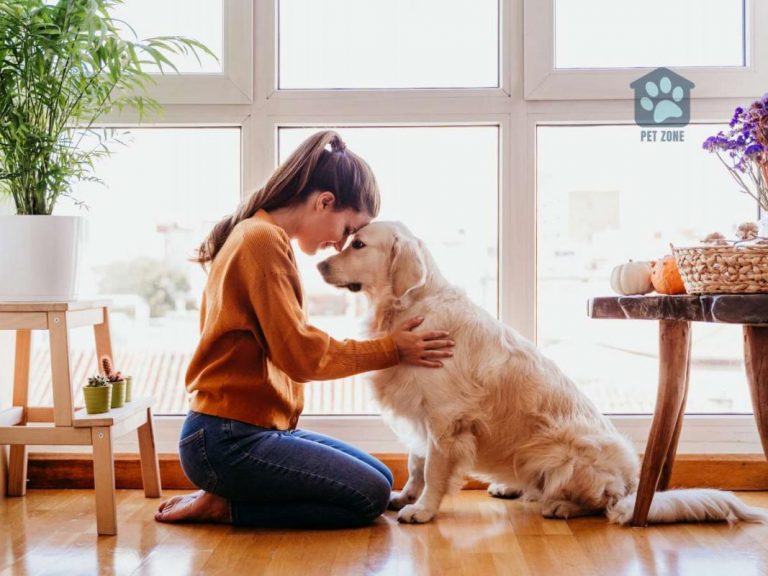
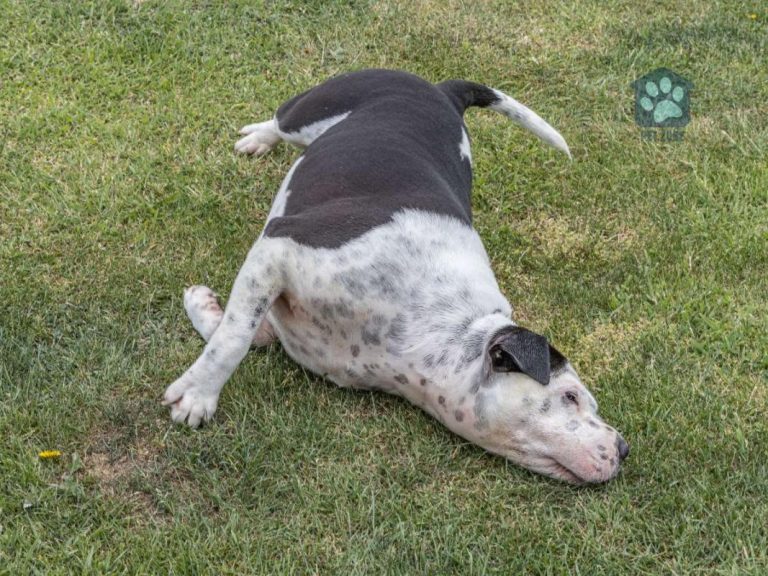
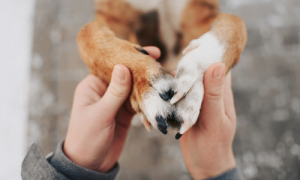
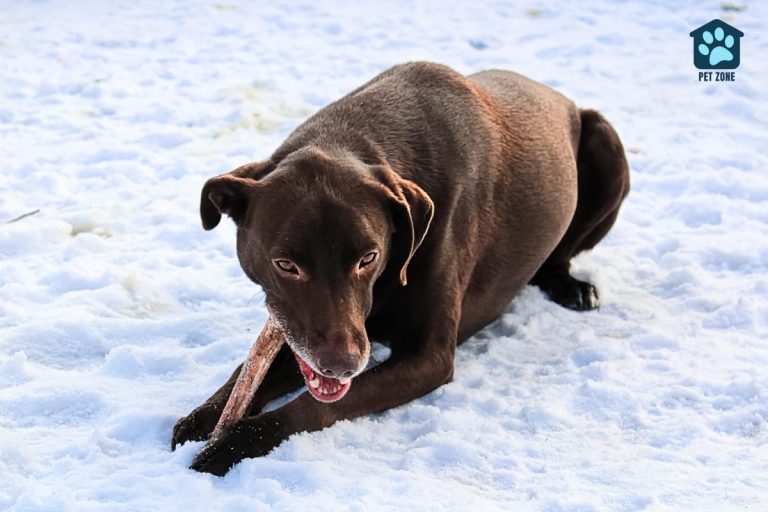
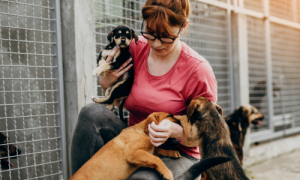
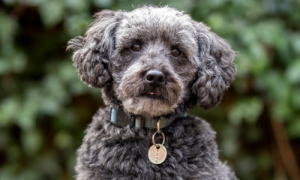
My partner have a dog but I don’t she ever slept in the closet. This would be good in case it happens in the future. Thank you for sharing!